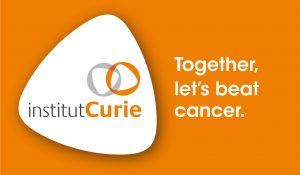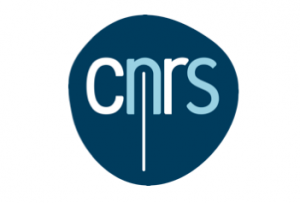Workshop details



Date: Sunday September 4, 2016
Time: 9:00 – 17:00
Venue: World Forum, room: Oceania Foyer
Workshop website
This workshop is sponsored by Institut Curie and the French National Centre for Scientific Research (CNRS).
Organisers
- Inna Kuperstein (Institut Curie, France)
- Emmanuel Barillot (Institut Curie, France)
- Andrei Zinovyev (Institut Curie, France)
- Hiroaki Kitano (Okinawa Institute of Science and Technology Graduate University, RIKEN Center for Integrative Medical Sciences, Japan)
- Minoru Kanehisa (Institute for Chemical Research, Kyoto University, Japan)
- Samik Ghosh (Systems Biology Institute, Tokyo, Japan)
- Nicolas Le Novère (Babraham Institute, UK)
- Robin Haw (Ontario Institute for Cancer Research, Canada)
- Alfonso Valencia (Spanish National Bioinformatics Institute, Madrid, Stain)
- Lodewyk Wessels (Computational Cancer Biology, Division of Molecular Carcinogenesis, Netherlands Cancer Institute, The Netherlands)
Summary
Today’s biology is largely data-driven, thanks to high-throughput technologies that allow investigating molecular and cellular aspects of life on large scales. These technologies comprise, for instance, microarrays, next-generation sequencers, mass spectrometers, or interaction screens, provide a big body of data. Making biological sense out of the amount of produced data requires their interpretation in the context of biological networks that govern cellular and physiological processes. The goal of BioNetVisA workshop is to bring together the different actors of network biology: database providers, experimental biologists and clinicians involved in systems biology approaches, as well as computational biologists involved in data analysis and modeling. The participants will be exposed to the paradigms of network biology and the latest achievements in the field. The BioNetVisA workshop also aims at identifying bottlenecks and proposing short- and long-term objectives for the community as discussing questions about accessibility of available tools for wide range of user in every-day standalone application in biological and clinical labs.
Key topics:
- Graphical representation of biological knowledge
- Molecular interaction and pathway databases
- Comprehensive signalling networks
- Networks annotation and curation
- High-throughput data visualisation, analysis and interpretation in the context of networks
- Network modelling
- Application of networks for basic research and clinical
Target audience
The workshop targets computational systems biologists, molecular and cell biologists, clinicians and a wide audience interested in update and discussion around current status of network biology, pathway databases, and related analysis tools, including visualization, statistical analysis and dynamic modelling. No computational background is required to attend the workshop. The round table panel planned at the end of the workshop will be a forum for live discussion around those topics.
Keynote speakers
- Vassili Soumelis (Institut Curie, Paris, France)
- Kathleen Marchal (Ghent University, Belgium)
Invited speakers
- Robin Haw (Ontario Institute for Cancer Research, Toronto, Canada)
- Alexander Mazein (European Institute for Systems Biology and Medicine, Lyon, France)
- Emmanuel Barillot (Institut Curie, Paris, France)
- Marie Beurton-Aimar (Université Bordeaux 1, Bordeaux, France)
- Alexander Kel (geneXplain GmbH, Wolfenbuettel, Germany)
- Theo Knijnenburg (Netherlands Cancer Institute, Amsterdam, The Netherlands)
Confirmed speakers
- Antonio Fabregat (EMBL_EBI, Germany)
- Daniela Börnigen (Harvard University, Boston)
- Axel J. Soto (University of Manchester, Manchester, UK)
- Jennifer Scheidel (Johann Wolfgang Goethe-University Frankfurt am Main, Frankfurt am Main, Germany)
- Céline Hernandez (IBENS, Paris, France)
- Maryam Nazarieh (Saarland University, CBI, Saarbrucken, Germany)
- Otoniel Rodríguez-Jorge (CIDC, Mexico and IBENS, Paris, France)
Abstract submission for posters and workshop program: https://sysbio.curie.fr/bionetvisa